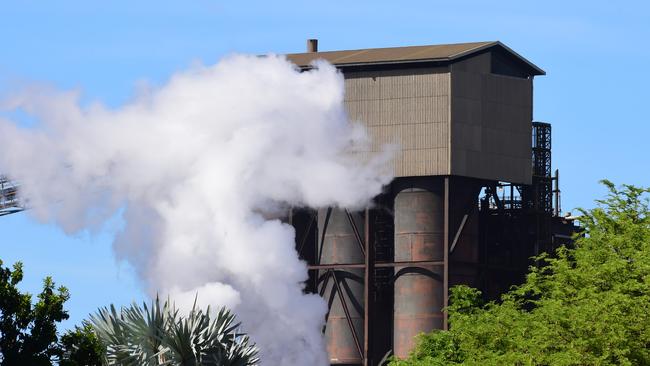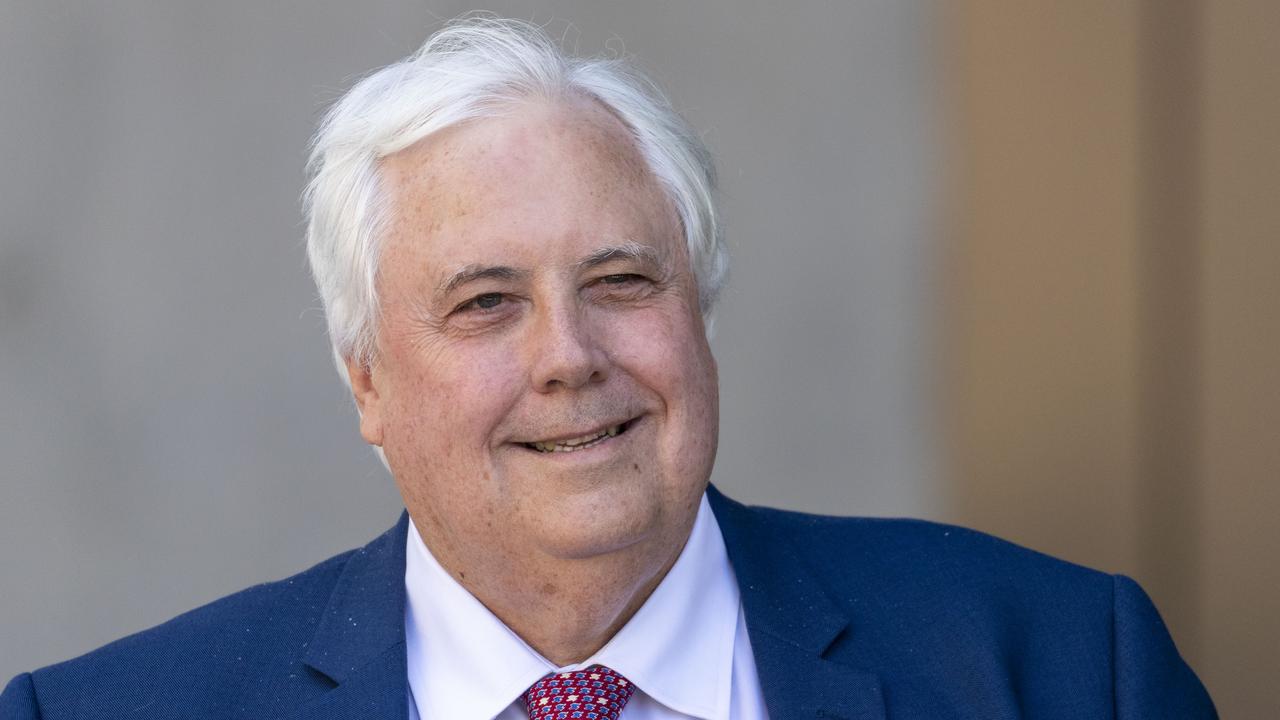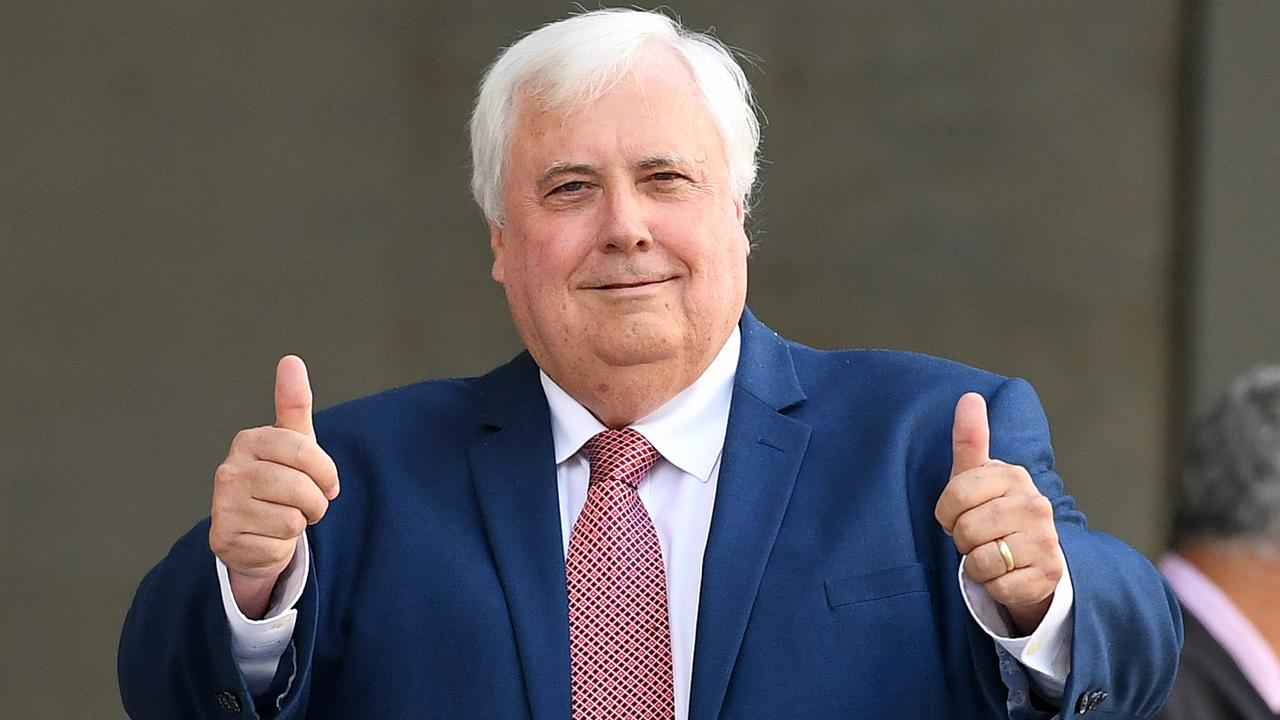Insolvency experts called in to Clive Palmer nickel refinery
Experts are on site at Clive Palmer’s troubled nickel refinery for secret meetings with his top executives.

Insolvency experts are on site at Clive Palmer’s troubled nickel refinery for secret meetings with his top executives, igniting fresh concerns the company is on the brink of collapse.
The Australian can reveal four Sydney-based senior members of accountancy firm Hall Chadwick’s business insolvency division have been in high-level talks since Monday at the Yabulu plant, north of Townsville, as the next monthly payday looms for the refinery’s 800 workers.
Hall Chadwick partner Richard Albarran, associate Jovandeep Singh, transition into administration specialist Mathew Badcock, and official liquidator and firm partner Brent Kijurina have been meeting Queensland Nickel executives including chief financial officer Daren Wolfe.
An expert in insolvency law said the meetings were “another sign that things aren’t looking good” for the refinery, Townsville’s largest private employer.
The covert talks come after Queensland Nickel managing director Clive Mensink, Mr Palmer’s nephew, reassured staff on December 15 that it was “business as usual” at the plant because Mr Palmer had forked out $2.4 million of his personal cash to pay workers’ wages for a month. The next payday is next Friday.
The state government — which rejected a bailout demand from Mr Palmer last month to act as guarantor for a $35m bank loan — has put rapid response teams on standby to help workers find new employment, should the refinery close.
Mr Mensink and Queensland Nickel’s general manager of operations, Ian Ferguson, declined to comment on Hall Chadwick’s presence at Yabulu. Mr Palmer did not return calls.
The refinery’s future has hung in the balance since November, when Mr Palmer’s lawyer told the Federal Court in Western Australia that the refinery was in a “worse than perilous position”.
Mr Mensink swore an affidavit that Queensland Nickel would be forced to call in administrators, sack workers, and close the refinery if it did not get an immediate injection of funds. The judge rejected the claim.
Australian Workers Union state secretary Ben Swan said workers had not been told about the meeting with insolvency experts. He said he was waiting for confirmation from Queensland Nickel that it had made provisions to cover workers’ entitlements, regardless of its future. “If they were having conversations with (insolvency) people, that probably wouldn’t surprise me because that’s what you would expect of any company that says it’s suffering that sort of financial hardship,” he said.
Mr Swan urged Queensland Nickel to make a decision soon to give workers certainty.
Employment Minister Grace Grace said she hoped the insolvency experts were there to help the company trade out of trouble, rather than advise on a closure of the refinery.
Queensland Nickel gave $5.9m to Mr Palmer’s party in the 2014-15 financial year.
The Australian has been told the Hall Chadwick team could be at Yabulu for two reasons: they could have been sent in to conduct due diligence by a bank considering lending Queensland Nickel money; or the firm could have been called in by Mr Palmer to offer advice on how to rescue and restructure the business.
If the firm discovers Queensland Nickel is trading while insolvent, Hall Chadwick will be installed as administrators.
None of the four Hall Chadwick accountants responded to The Australian’s questions yesterday, but the firm’s website says of Mr Albarran: “Richard’s energy and expertise has enabled many clients to resolve financial problems and to once again trade profitably, when there had appeared to be little or no hope”. It says Mr Badcock has the “ideal skill set to help companies manage their trading relationships during the challenging transition through and out of administration”.
Last September, Mr Mensink signed off on accounts that declared Queensland Nickel had a “total comprehensive income” of more than $1.1 billion in the last financial year.
The company says it has unencumbered assets of $1.95bn and little debt.
Analysis by The Australian of Federal Court affidavits revealed the $1.1bn figure was derived from unrealised accounting adjustments. The refinery bled nearly $20m in negative cashflow in the 2015 financial year, and was under increasing pressure as the global nickel price continued to fall.
There are also concerns about who would take on the environmental liabilities should Mr Palmer’s company collapse and no buyer is found.



